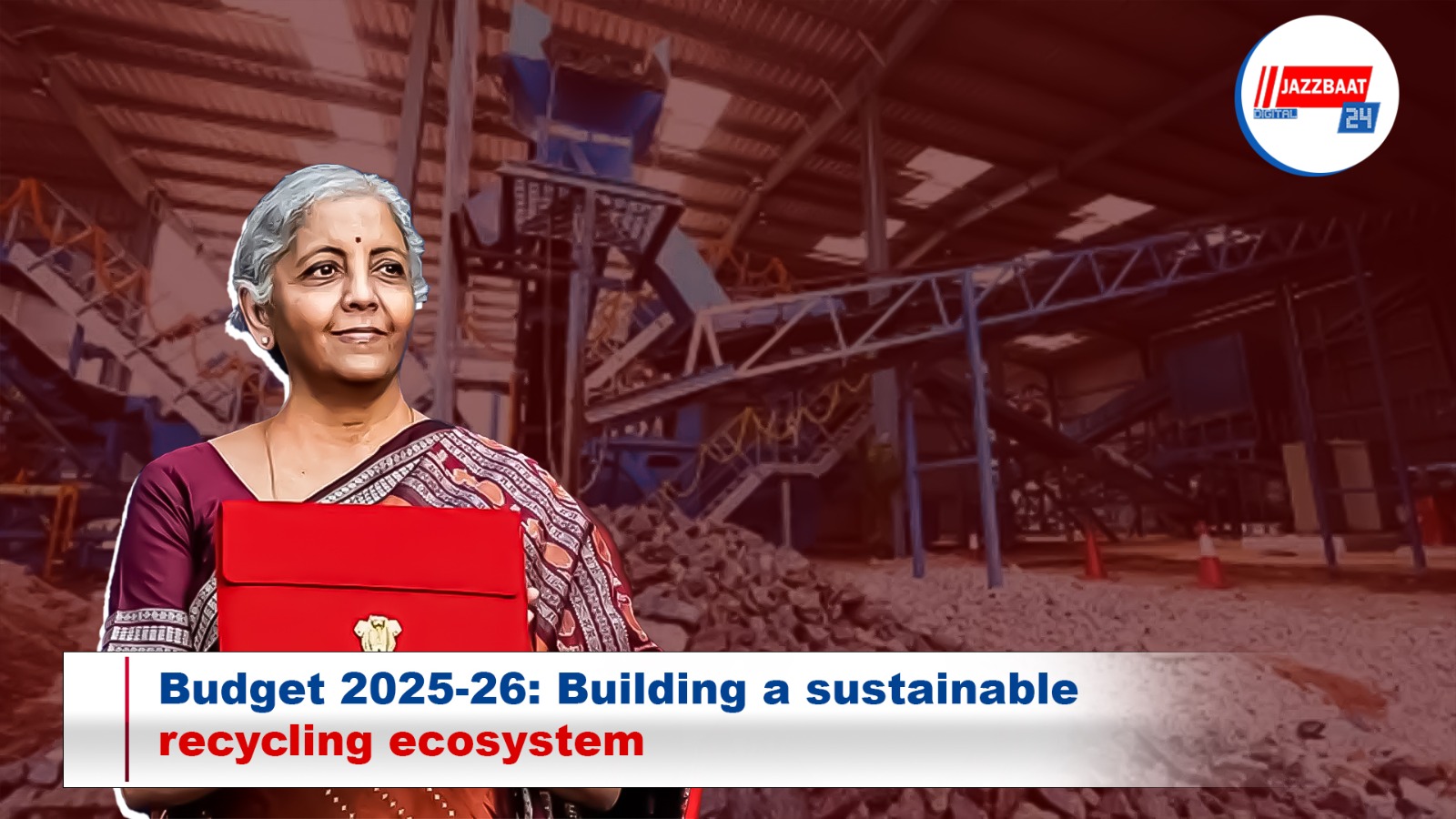As India gets ready for Union Budget 2025-26, sustainability and self reliance has never been more important. India generates 3.2 million metric tonnes of e-waste every year, we are the 3rd largest in the world. Industry leaders are demanding for policy measures, a Production-Linked Incentive (PLI) scheme for recycling industry, rollback of 5% GST to 18% on waste management and investment in latest recycling technologies.
India imports 90% of its critical minerals, making the economy vulnerable to global supply chain disruptions. The upcoming budget will be a huge opportunity to build upon the newly announced National Critical Mineral Mission and create a circular economy.
"India stands at a pivotal moment in its journey toward a recycling revolution, driven by the rapid surge in e-waste generation, which has increased by 73 per cent between 2019 and 2023. The launch of the ‘Critical Minerals Mission’ offers a unique opportunity to address this challenge while building a self-reliant ecosystem for resource recovery,” said Nitin Gupta, CEO & Co-founder of Attero.
“To further accelerate progress, we strongly advocate the introduction of a PLI scheme for the recycling industry. Such a policy would not only incentivise investments in advanced recycling technologies but also facilitate large-scale capacity building, thereby reducing reliance on imports for critical minerals,” Gupta added.
Gupta said even as China is the biggest supplier of critical minerals, India should have policies that promote recycling and domestic production for self reliance. Strong policy support for extraction and utilisation of critical minerals from e-waste and Li-ion batteries is a must.
“This includes focused efforts on the efficient salvaging of high-value materials such as lithium, cobalt, and nickel from end-of-life products like EV batteries and electronic devices. Such measures would enable a seamless framework that integrates extended producer responsibility (EPR) mechanisms with a strengthened value chain to drive the creation of a circular economy. We also welcome initiatives like the Faster Adoption and Manufacturing of Hybrid and Electric Vehicles (FAME) programme, and we look forward to complementary measures that promote domestic recycling of EV batteries and other e-waste components,” Gupta said.
Nimit Aggarwal, Founder & Managing Director, EcoEx said the waste management industry is at a crossroads post GST revisions.
“The hike from 5 per cent to 18 per cent has introduced significant challenges, particularly for businesses striving to innovate and contribute to sustainability goals. We urge the government to consider rolling back the GST hike in the upcoming budget. Additionally, while the reverse charge mechanism (RCM) is a solution, it has added compliance complexity, especially for SMEs,” Aggarwal said.
Or simplify RCM or exempt waste management industry. So that businesses can focus on their business.
“A supportive tax regime is essential to drive investment, support innovation, and build robust infrastructure within the waste management sector. We look forward to support from the government to create a balanced GST structure that builds sustainable growth and aligns with India's environmental objectives," Aggarwal said.
Founder and CEO of Recykal Abhay Deshpande welcomed the Critical Minerals Mission as well as the Production Linked Incentive scheme in Budget 2024.
“With India heavily reliant on imports for critical minerals, strengthening domestic recycling infrastructure has become a strategic necessity. E-waste and battery recycling are vital for the recovery of rare earth elements and critical minerals, especially as global production is concentrated in a few nations,” he said.
To break this dependence, India needs to focus on development of advanced recycling technologies, financial support to state of the art facilities and investment in R&D for critical mineral recovery.
“In addition, reducing GST to 'nil' for both plastic waste and recycling machinery would significantly incentivize recycling efforts and accelerate the adoption of advanced technologies," he said.
Union Budget 2025-26 can be a game changer for India’s waste management and critical mineral recovery. Global demand for lithium, cobalt and nickel is expected to rise by 500% by 2050, we need to secure our domestic supply chain.
A balanced and forward looking budget will not only drive economic growth but also make India a leader in resource efficiency and clean energy transition.
